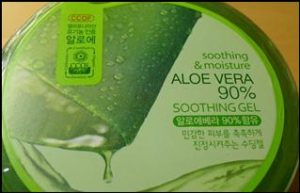
The Asian natural cosmetics market is growing at a fast rate, however the market is blighted by false marketing claims, mislabelling of products and consumer confusion.
High consumer demand for ‘chemically clean’ cosmetics is leading many Asian companies to jump on the natural & organic bandwagon. Many new products are making claims such as ‘100% natural’, ‘no synthetic chemicals’ and ‘includes organic ingredients’.
Unlike in Europe and North America, there are no private standards for natural & organic cosmetics in Asia. Adopting standards is expensive and few companies can afford to bring in inspectors from Western certification agencies.
In the absence of private standards, many cosmetic brands are marketing their products on their natural / organic ingredients. Some companies are positioning their products as organic even though they contain just trace organic ingredients.
Some Asian companies are going as far as illegitimately placing certification symbols & logos on product packaging. Others are using certified organic ingredients to place symbols and logos on product packaging, giving an illusion that the finished product is also certified. For instance, the above picture shows natural aloe vera soothing gel with CCOF organic logo, marketed in Korean retailers. Only the aloe vera is certified organic by California Certified Organic Farmers (CCOF).
It is thus no surprise that Asian consumers are confused about natural and organic cosmetics. They are seeking products that are natural / organic and do not contain parabens, phthalates and related synthetic ingredients, however they are typically getting mislabelled conventional products.
A positive development is that some retailers are safeguarding consumer interests by becoming the ‘gate-keepers’ for pure natural and organic brands. Retailers have the power to decide what natural and organic products should appear on their store shelves. Indeed, many specialist retailers are demanding natural & organic brands substantiate their marketing claims by certification. Just Life, the leading organic food retail chain in Malaysia, has taken a decision to only consider new brands that have certified products. Other retailers are scrutinising the ingredient list of cosmetic products to verify their ‘chemical-free’ status.
Some brands, realising the implications of false marketing and misinformation to consumers, are focusing on green formulations. Amore Pacific and Himalaya Herbals are two large cosmetic firms developing certified lines of natural & organic cosmetics. They know consumer trust and loyalty are vital for success in the natural cosmetics market.
Certification enables natural & organic cosmetics to legitimise marketing claims, however overcoming consumer confusion remains a major challenge. Few Asian consumers are able to distinguish between pure natural cosmetics and falsely labelled ones. Consumer education is considered essential. Indeed, it could be the marketing muscle of large cosmetic brands that unlocks the potential of the highly prospective Asian market.
Sustainable Cosmetics Summit
The marketing and distribution challenges associated with natural and organic cosmetics are regularly featured in the Sustainable Cosmetics Summit. More details on upcoming editions is available from the website
Posted: September 30th 2011
For permission to publish our research insights, please contact our media department

